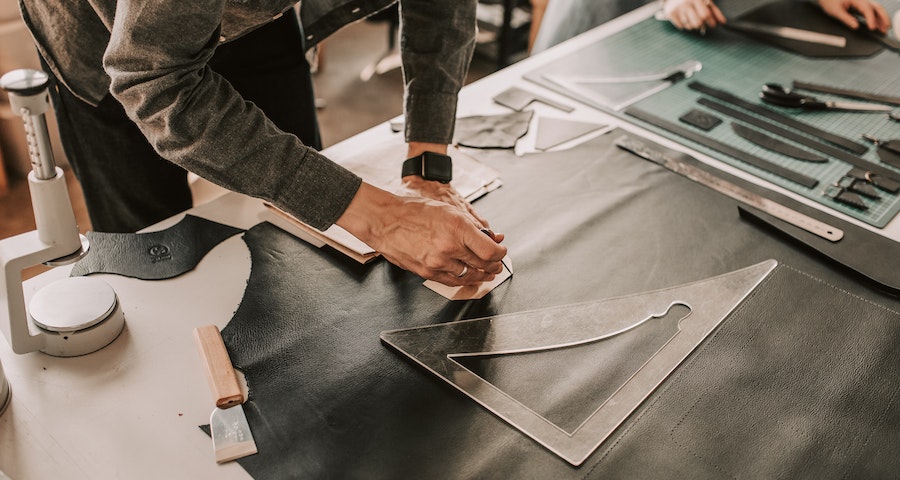
Leather sewing is a fantastic crafting skill to have, whether you are creating a leather wallet, stitching on leather patches on your jacket, or just repairing a leather bag, sewing leather can come in handy. Sewing leather is a skill that requires a lot of practice and patience because leather is not only a thick material, but it is also a very tough one. Here are four tips to help you perfect your leather sewing skills.
Contents
Choose the right needle and thread
If you want to have a successful leather sewing experience, it is important to choose the right needle and thread. The first thing you need to consider when choosing a needle is its size and type. The size of the needle should be at least 16, and it should be a heavyweight needle suitable for sewing leather. You should also consider the type of thread you will be using. The thread should also be strong, and it can be either polyester or nylon. Make sure that the thread you pick is thicker than the one you would use on normal fabric.
Use a leather sewing machine
If you plan on sewing a lot of leather, investing in a leather sewing machine is a good idea. Leather sewing machines are designed to handle the thickness of leather, and they have special features that can make the sewing process smoother. A leather sewing machine has a walking foot, which means that the machine can feed the leather through the machine more evenly, and there is less chance of the leather slipping and sliding around. It also has a larger needle area, so you can use bigger needles.
Mark the leather
Before you start sewing the leather, it is a good idea to mark it. Make sure that the markings are clear and visible, as this will help you keep your stitches straight. You can use chalk, a disappearing fabric marker, or an awl to mark the leather. An awl is more precise, and it makes a tiny hole that you can follow with your needle.
Practice on scrap leather
One of the most important things to do when learning how to sew leather is to practice. Before you start sewing your final project, practice on scraps of leather. Get used to the feel of the fabric and try out different stitch lengths and tensions. This way, you can get a better idea of how the leather will react to different stitches and find what works best for you.
Conclusion
Sewing leather may seem intimidating at first, but with practice and these tips, you will be able to sew leather like a pro in no time. Remember, picking the right needle and thread, using a leather sewing machine, marking the leather, and practicing on scrap leather are all essential to getting a beautiful and long-lasting finished product. Happy sewing!
